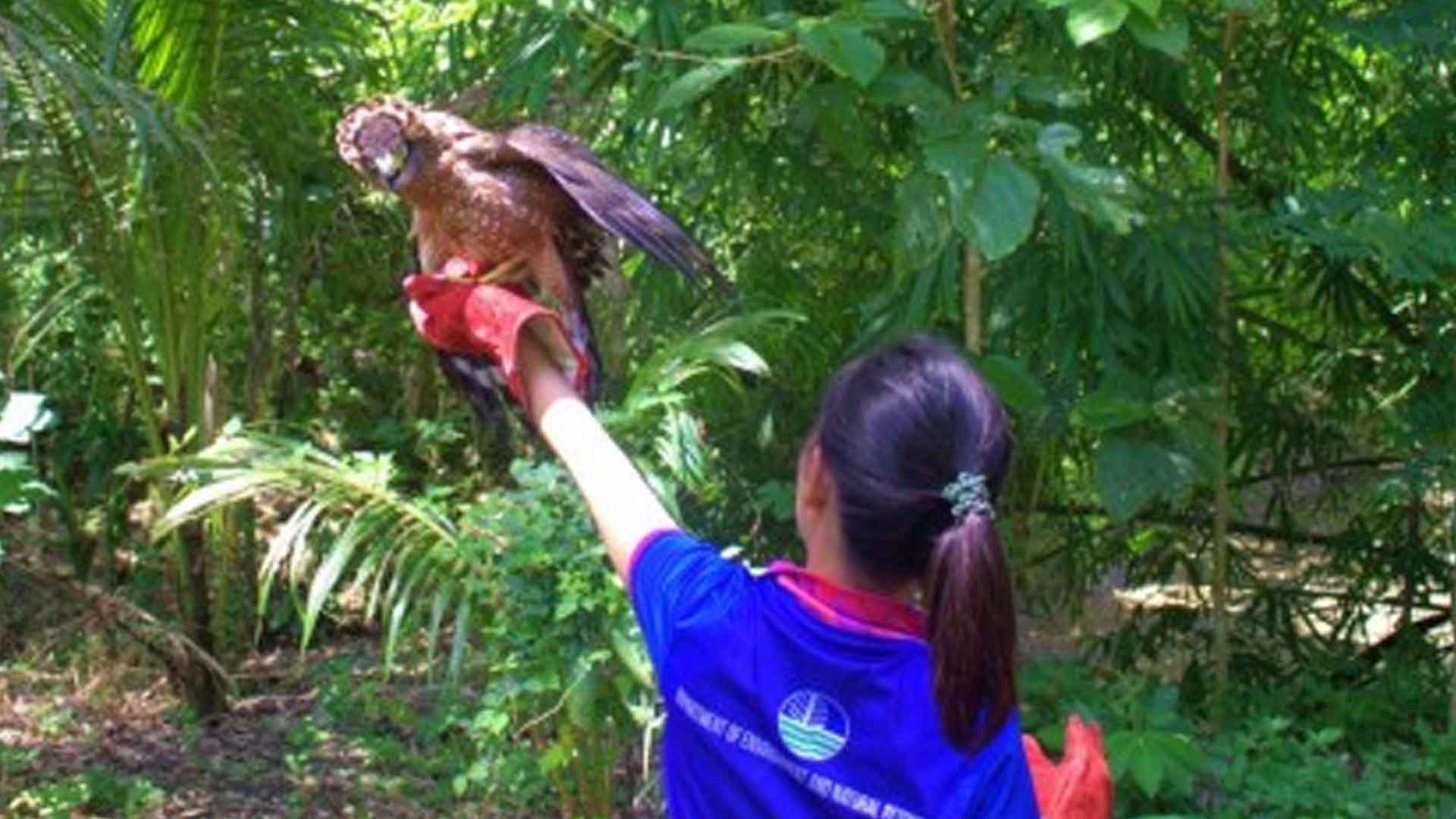A rescued Philippine serpent eagle has been freed back to the wild in Sarangani province, an official said Monday.
The eagle (Spilornis holospilus) was sent back to its natural habitat on Saturday afternoon after it was found to be healthy by a veterinarian, officials said.
Miguel Rabuyas, a villager from Barangay Lun Masla in Malapatan town, found the bird trapped in his farm.
Aware of the law that prohibits the capture, sale, and slaughter of endangered big birds, Rabuyas brought the eagle to Dr. Rosalinda Cortez, the community environment officer of nearby Glan town.
“Glan veterinarian Dr. Vernie Rido Aspera has examined the eagle and found it was healthy and fit to be returned to the wild,” Cortez said.
The eagle was released in an uninhabited area in Barangay Calabanit in Glan.
Several big birds, like the Eastern grass owl, have also been rescued by residents, turned over to the Environment department and sent back to the wild after certification from a veterinarian that they are safe.
Republic Act 9147 or the Wildlife Resources Conservation and Protection Act prohibits the unauthorized possession of wildlife and mandates strict penalties for violators.
Cortez said the Philippine serpent eagle, known for its preference for primary and secondary forest habitats, is an endemic species to the Philippines.
However, its conservation status remains a concern due to the continuous threat of habitat loss, despite being classified under “least concern” by the International Union for Conservation of Nature.
“Least concern” does not qualify for Critically Endangered, Endangered, Vulnerable or Near Threatened, including widespread and abundant species.
On top of birds, Sarangani Bay also hosts several endangered marine mammals, among them dolphins and “dugong” (sea cows), that are sometimes stranded and successfully sent back to their natural habitats. (PNA)









